We are always eating
or about to, or just done.
We are hungry, we are sated,
we are wishing we hadn’t.
We are making up for it,
or planning our denials,
or confessing them.~ from “Dieting” by Julia Wendell
 I’m pleased today to welcome Maryland poet Julia Wendell, who’s as passionate about words as she is about horses. With a life marked by such difficult personal challenges as anorexia and alcohol addiction, it seems riding and writing have been her saving graces.
I’m pleased today to welcome Maryland poet Julia Wendell, who’s as passionate about words as she is about horses. With a life marked by such difficult personal challenges as anorexia and alcohol addiction, it seems riding and writing have been her saving graces.
The 29 poems in her new chapbook Take This Spoon are presented in seven sections, each leading off with a favorite family recipe to whet the reader’s appetite. As she says in her poem “Dieting,” we spend much of our time obsessing about food. Some are addicted to eating, while others are addicted to not eating. Better to take a lesson from animals:
Self-consciousness doesn’t ruin
their appetite or enjoyment.
They don’t judge what they consume,
or long for what they won’t allow themselves.They don’t confuse who they are
with what they eat,
fearing they won’t be loved
if they’re fat, or don’t cook,
or overcook, or nearly kill themselves
by making up for their gluttony
with fasting.
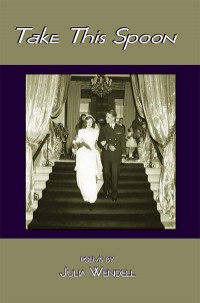 Julia explores the complicated relationship humans have with food by fixing a personal lens on her own family. In artfully crafted scenes, (a mother keeping her daughter out of the kitchen so she won’t see her drinking, a young woman bringing home a bohemian boyfriend to dinner at her mother’s “immaculate table,” a woman aching for her deceased mother as she comes across her handwriting on recipe cards), the subtexts of pain, regret, loss, and contention are plated to perfection. Her descriptions of food are lyrical and sensual, her voice intimate and honest, her ability to align what is being eaten with what eats away at the heart and soul is powerful.
Julia explores the complicated relationship humans have with food by fixing a personal lens on her own family. In artfully crafted scenes, (a mother keeping her daughter out of the kitchen so she won’t see her drinking, a young woman bringing home a bohemian boyfriend to dinner at her mother’s “immaculate table,” a woman aching for her deceased mother as she comes across her handwriting on recipe cards), the subtexts of pain, regret, loss, and contention are plated to perfection. Her descriptions of food are lyrical and sensual, her voice intimate and honest, her ability to align what is being eaten with what eats away at the heart and soul is powerful.
Since so many of you enjoyed Julia’s poem, “My Mother’s Handwriting,” I know you’ll find her thoughts about writing, familial relationships, and the love of horses interesting.
Naturally, I asked her to share a recipe. Peanut Butter Pie, anyone? 🙂
* * *
♦ JULIA WENDELL ON TAKE THIS SPOON ♦
How did Take This Spoon come about? Have you always been interested in writing food poems?
 On my mother’s death, I inherited my mother’s enormous stack of cookbooks, recipe boxes and folders. I was moved by seeing again my mother’s handwriting—so vivid and alive, as if she had just written the cards yesterday. How odd that our handwriting becomes a kind of legacy, as a poem can.
On my mother’s death, I inherited my mother’s enormous stack of cookbooks, recipe boxes and folders. I was moved by seeing again my mother’s handwriting—so vivid and alive, as if she had just written the cards yesterday. How odd that our handwriting becomes a kind of legacy, as a poem can.
I paused at my favorite dishes, plucking out a few to try again. . . . and I thought, what a shame if these family favorites don’t somehow get preserved and passed on. I came up with the idea of compiling them into a homespun book, as Christmas presents for my grown kids, John and Caitlin. As I was working on the project, memories cascaded—of my mother and I at work together in the kitchen, of my original family at the table, of my own troubled relationship with food and alcohol—and I started writing poems that sprang from the memories provoked by those recipes and dishes.
I finished the project. The “cookbook” had maybe 50 recipes in it, and a handful of poems. I fished through old photos, took pictures of some of the dishes, designed the cookbook myself on Blurb.com. Christmas came and went. The kids loved the gift. Now they wouldn’t have to call me Thanksgiving morning to ask how to cook the turkey—once again. I’m not sure this was actually an asset.
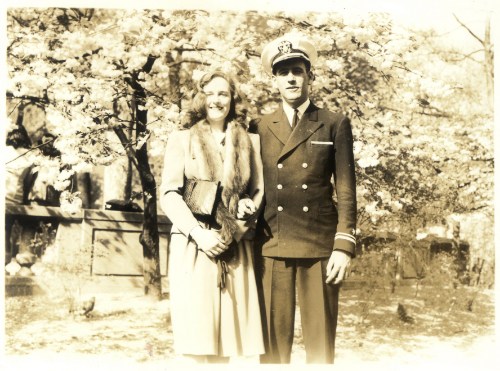
I couldn’t let the project go, and I kept writing poems about my past and present relationship with food. It wasn’t till I was editing the book with April Ossmann’s guidance, that I realized I was writing a book of poems framed by the recipes, and not the other way around. Most of the original dishes were subsequently taken out of the manuscript, although I have begun to include them on my blog at www.JuliaWendell.com.
Which poem in this collection are you most proud of? Please take us through its evolution from initial spark to finished work. How did writing it stretch you as a poet?
Probably “Addictions,” although I expect that this conclusion may change over time. Not only does “Addictions” deal with the most troublesome subject matter, but it also is the longest poem in the collection—a long poem in short sections which overlap and flow together as a whole narrative—this was the intention, anyway.
Long poems are always harder to write than shorter poems—at least for me—to sustain one note over a greater period of time is more difficult than to snapshot a moment in time, akin to the arc of the short story versus the longer, more complicated arc of the novel. You have to be able to hold the whole in your head as you’re struggling to articulate and polish the parts, and this isn’t easy for me, when the parts are many, and so difficult to convey. Like Major Jackson says, “It’s important for the train to make many stops along the route.”
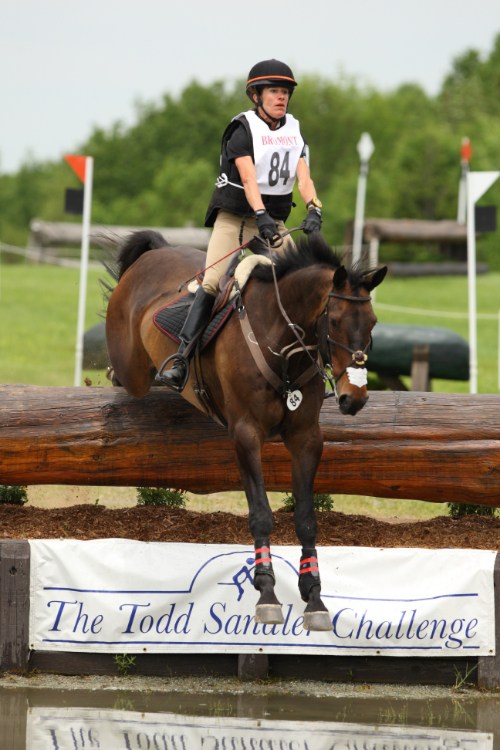
Several of your poems examine the push and pull of the mother-daughter relationship. What are your favorite food-related memories of your mother and your daughter?
I wrote of these favorite (and sometimes painful) memories in the book—stirring endlessly the cheese soufflé as my mother flitted around the kitchen in her frilly apron, constantly sipping her vodka as she searched for the next ingredient. I was always the designated stirrer, because it was too difficult for my mother with her arthritic fingers. Years later, my own fingers are knobby and crooked and painful, and each time I look at them I realize that I carry my mother within me, and that I also inherited her passion for deliciously-rich shortcuts, when it comes to food.
My daughter developed into a food health nut—no help from me—rather than embracing my culinary tastes, she has renounced them. She is more interested in coconut milk, Greek yogurts, superfood smoothies and braised kale than she is my mother’s cheese soufflé or chocolate sauce. I never welcomed her into my kitchen in the same way my mother welcomed me, because unlike my own mother, I didn’t want her to see me constantly sipping.
Caitlin was also never that interested, for one thing, and for another—well, we have always gotten along better when we haven’t had to depend on each other or work as a team. It’s just the way Caitlin and I jive. And yet, though her tastes are radically different than mine, she is every bit as obsessed with her versions of food as I am of mine.
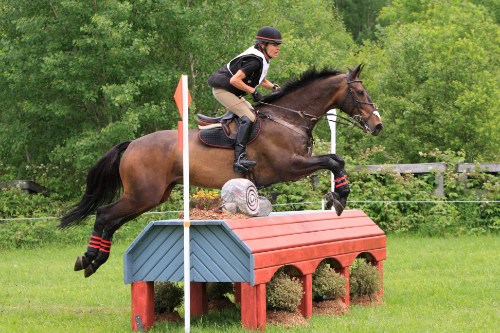
Tell us a little about how your passion for horses feeds your writing. Do you think you’re a better poet for having left academia behind?
Oh, I don’t know that I’m a better poet for having left academia behind. I’m sure I’ve lost out on a lot of personal education, not to mention all the contacts and connections. But I made a distinct choice to experience the life my poems would draw from. I’m a doer more than a thinker, I almost hate to admit this—but it’s the truth. I do things, and then I write about them.
Horses have always been a part of my life, since I was a child bumming around on horseback through the wilds of western Pennsylvania—and a return to what made me happiest growing up was inevitable in my sustainability of happiness as an adult. Horses are a large part of what formed me growing up, and they continue to be my mainstay today—every bit as much as the next poem is.
You tackle painful, soul baring subjects like addiction and anorexia head on. Is writing poetry its own addiction? What compels you to write?
I’ve always written and it’s just who I am. Writing is not a need for me, it’s more like a personality trait.
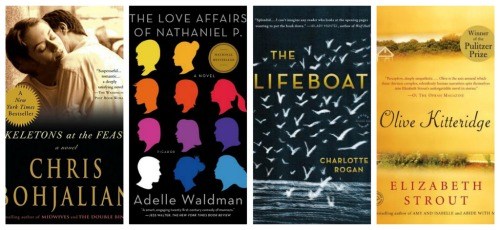
Who are some of your favorite poets writing today?
Billy Collins, Donald Hall, Jack Gilbert, Mark Strand, David St. John, Louise Gluck, Norman Dubie, the late Larry Levis and Jane Kenyon. The more accessible the better. I’m also a huge fiction reader—I have to be in the middle of a novel at all times. More recently I’ve read and loved Sebastian Barry’s A Long Long Way, Charlotte Rogan’s The Lifeboat, Adelle Waldman’s The Love Affairs of Nathaniel P, Elizabeth Gilbert’s The Signature of All Things, Chris Bohjalian’s Skeletons at the Feast, Elizabeth Strout’s Olive Kitteridge, Abraham Verghese’s Cutting for Stone, to name a few. I read to be entertained, both fiction and poetry. I’m neither a reader nor a writer who enjoys obscurity. It must be well written, and it must be clearly spoken.
Is there anything else you’d like us to know about Take This Spoon?
Whether it’s addiction, divorce, sickness, professional disappointments, whatever we are all working through the negatives in our lives toward the positives. I am essentially an unhappy person, but I am always striving toward my opposite. I would like to get there some day, if only briefly.
Please share a recipe and provide a little backstory about it.
Here’s one of my mother’s simplest—and most delicious—dishes I’ve ever eaten—Peanut Butter Pie. Once again, I was a critical aspect of the concoction, as it requires lots of stirring and beating. I believe the original comes from The Deer Head Restaurant in Spring Creek, Pennsylvania, where you could also get the best coleslaw in the world—although the chef would not share his secrets for that dish with my mother.
* * *

PEANUT BUTTER PIE
Whoever eats a piece is guaranteed to ask for the recipe, and this is one you may be embarrassed to pass along because of its simplicity. I’ve even used frozen store-bought pie crusts and you can hardly tell the difference, the pie innards are that good. The secret is lots and lots of beating.
- 1/2 cup butter
- 1/2 cup peanut butter
- 2 eggs
- 1 teaspoon vanilla
- baked, cold pie crust
- Whipped cream
Beat butter until light and fluffy. Add peanut butter and beat again. Add eggs, one at a time. Beat 5 minutes, first egg, and 3 minutes, second egg. Add vanilla. Blend well. Pour into baked crust and chill until firm. Top with whipped cream.
*This recipe is included in Take This Spoon, along with recipes for:
- Cheese Soufflé
- Seizure Salad
- Rum Balls
- Cheese Wafers
- Spaghetti Aglio e Olio
- Chocolate Sauce
* * *
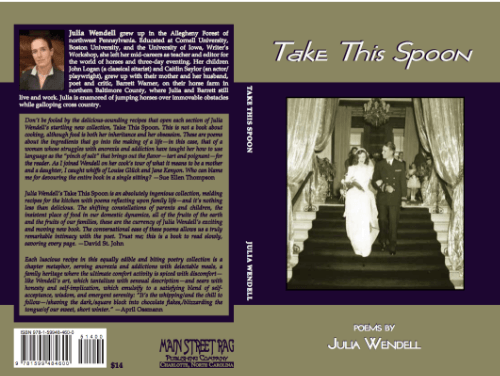
TAKE THIS SPOON
by Julia Wendell
published by Main Street Rag Publishing Co., 2014
Poetry Chapbook, 76 pp.
* Visit Julia’s website to learn more about Take This Spoon and all her other books.
* Click here for information about Julia’s and her husband Barrett Warner’s horse farm up in Northern Baltimore County.
* In case you missed the post where I shared her poem “My Mother’s Handwriting,” click here.
* * *
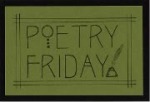 The always welcoming and oftentimes hilarious Catherine Johnson is hosting today’s Roundup. Check out all the cool poetic offerings being served up in the blogosphere this week and enjoy your weekend!
The always welcoming and oftentimes hilarious Catherine Johnson is hosting today’s Roundup. Check out all the cool poetic offerings being served up in the blogosphere this week and enjoy your weekend!
——————————
Copyright © 2014 Jama Rattigan of Jama’s Alphabet Soup. All rights reserved.

What a personal and intriguing book, and how great that Julia channeled her struggles into something positive- and helpful and inspiring to so many readers. The pie sounds delicious!
LikeLike
Julia’s poems are so accessible. It’s a pleasure to read such good writing.
LikeLike
Thanks for giving us a second helping from this poet!
LikeLike
You’re very welcome!
LikeLike
Oh, I love having the background to how a work emerges from the murk of the mind. How astounding to discover she wasn’t writing a cookbook, but a chapbook. I love this poet’s simple, quiet voice – the words stay with you.
LikeLike
Lucky for us she couldn’t leave the project alone and took her project one step further.
LikeLike
Enjoyed the interview, and the Peanut Butter Pie looks delicious!
LikeLike
Glad you enjoyed learning more about Julia :).
LikeLike
Wonderful interview, with so much inspiration.
LikeLike
Yes, inspiration and lots of food for thought :).
LikeLike
Fascinating interview. I’m sure the book will be equally fascinating. Thanks.
LikeLike
It’s one of those rare poetry books where every poem is emotionally resonant and you’re not left wondering what any of the poems mean.
LikeLike
There’s so much truth in that opening poem. Our relationship with food is complicated, isn’t it?
LikeLike
Definitely complicated. Unlike animals, we don’t eat merely to survive — there are social, political, and cultural implications to what we eat, when, why, and with whom.
LikeLike
This sounds like such a work of heart! Thank you for sharing Julia, her poems, stories and recipe with us, Jama.
LikeLike
Definitely a work of heart, quite a revelation as to the essence of the poet.
LikeLike
What a powerful collection! Thank you for introducing Julia to us, Jama – and her wise words about what is (alas) a very complicated thing: our relationship to eating. I am off to purchase this book.
LikeLike
You will find much to ponder and I know you’ll enjoy the poems, Tara. 🙂
LikeLike
Such an interesting interview of a talented poet, Jama. I found the whole thing fascinating, including the photos of Julia in action with her horses and the book recommendations she gives. Thanks.
LikeLike
Yes, some great book recs in her answer — I don’t get to read half as much adult fiction as I would like and all of her suggestions look intriguing.
LikeLike
Thanks Jama, the book has such an interesting story behind it. That first poem is so powerful. I’ve never thought about how human attitudes about food differ so much from animals’.
LikeLike
Leave it to human beings to complicate everything. I think women may have a harder time than men because of the whole weight issue.
LikeLike
What a great post. 🙂
LikeLike
Glad you liked it!
LikeLike
Such a fulsome follow-up to our first introduction, Jama – thanks to both of your for sharing. I love the honesty here.
And: “It must be well written, and it must be clearly spoken.” Amen.
LikeLike
I second that “Amen.” Her own writing reflects those very same standards — why I am so drawn to her work. 🙂
LikeLike
Jama, the interview you shared was an intriguing exchange between you and the author. With clarity and a genuine spirit you asked probing questions that Julia answered in an honest fashion.
LikeLike
Thanks for reading, Carol. It was a pleasure to interview Julia!
LikeLike
This is the kind of literature that fills me – I’m pretty certain I’d have second helpings when I read Julia Wendell’s poetry. I love the subtle combination of vulnerability and strength as evidenced in her voice through your interview. Thanks, Jama, for letting us know about “Take this Spoon” – very authoritative sounding yet with a gentleness about it, very motherly, really.
LikeLike
Not sure whether my earlier comment went through, but I do hope it did. 🙂
LikeLike
This is exactly the kind of literature that fills me – I’m pretty certain I’d have second helpings when I read Julia Wendell’s poetry. I love the subtle combination of vulnerability and strength as evidenced in her voice through your interview. Thanks, Jama, for letting us know about “Take this Spoon” – very authoritative sounding yet with a gentleness about it, very motherly, really.
LikeLike
So very perceptive as usual, Myra. Her poems do reveal that combination of strength and vulnerability. The solid structure and craftsmanship frame some very fragile emotions.
LikeLike
My traveling this month makes me very late to this post, Jama, but I wanted to be sure to thank you for the great interview questions, and Julia, for sharing such honest insight and memories from her personal life. While that’s what poetry is all about, it still always feels like a privilege to me to be trusted with such confidential matters.
LikeLike
Thanks for coming back to read, Michelle. Poets have to be brave because they write the truth. 🙂
LikeLike